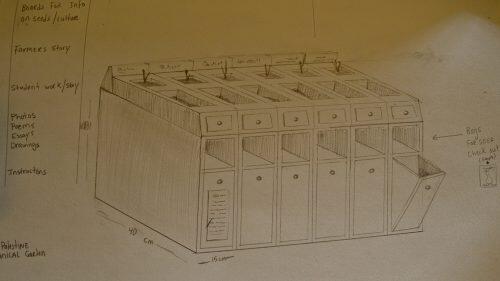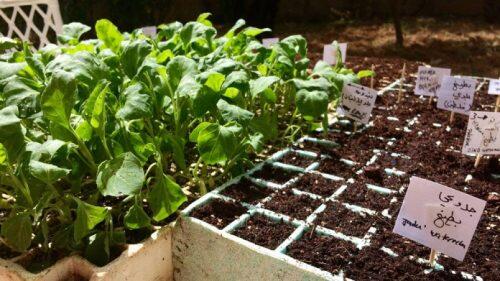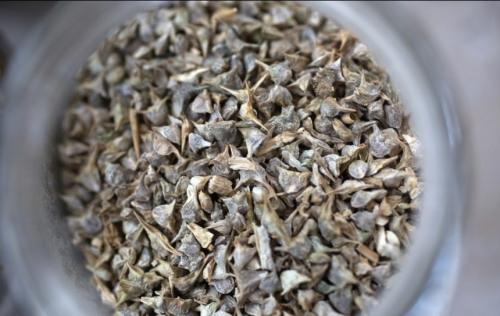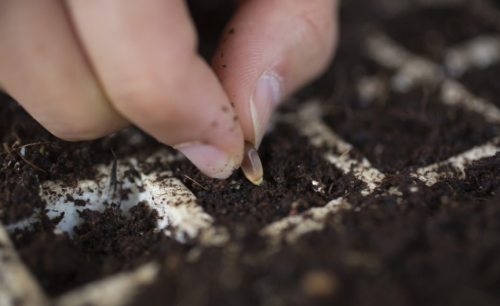Palestinians try every way possible to resist the occupation imposed on them in their daily lives. Each child, parent, mother, teenager, and elderly, has his/her own way in resisting the Israeli occupation. However, we will highlight a very inspiring story of “resistance through environment”.
Today, something special is happening; the launching of the first seed library in Palestine.
Vivien… “The Dreamer” giving back to her land
Vivien Sansour, an agronomist from Beit Jala, a town near Bethlehem, has been collecting seed varieties handed down by Palestinian farmers for generations, aiming to place them in a seed library. She hopes that the seed library will sprout into others across the occupied west bank and the Gaza strip.
Sarsour’s work will be unveiled on today in Battir, a West Bank village between Bethlehem and Jerusalem that is known for its ancient agricultural terraces.
Qattan Foundation, is the sponsor of the library, as it mentions on its website, adding that “the Palestinian Heirloom Seed library: A collective community project to salvage and propagate our agri-cultural heritage through story, seed, and art”.
The website also mentions that “the Palestine Heirloom Seed Library project was conceived by Vivien Sansour and adopted by Walid and Helen Kattan Science Project”, adding that “the library is being created under the sponsorship of the A.M. Qattan Foundation and with the collaboration of teachers and students who are part of the Qattan Foundation Education programs”.
The Threat!
The library aims to educate Palestinians about traditional forms of agriculture in Palestine, which are in danger of being forgotten, and about the culture associated with them.“The Guardian” mentions that the library “joins a seed bank established by the Union of Agricultural Work Committees in 2008 to help increase the income of smaller farms in Palestine and save and document seed examples”.
The agronomist behind the library project was inspired to launch the library after her experiences in Mexico and after working with farmers in the West Bank city of Jenin. “I was away from Palestine for a long time,” said Sansour. “While I was away, what I remembered were the smells and tastes. When I came back, I realized that what I remembered was under threat and disappearing”.
“That threat came from several things. From agri-companies pushing certain varieties and farming methods and from climate change. Places, too, where people would forage for edible plants – like the akub thistle – have come under threat because of issues like the spread of Israeli settlements.
Teachers attend an Heirloom Seed Library workshop in the West Bank village of Battir [Photo courtesy of Vivien Sansour]
“I realised that what was also under threat was something deeper – the connection to a sense of cultural identity. The songs women would sing in the fields. Phrases, even the words we use. So it is about preserving the local biodiversity, but it is also about the importance to Palestinian culture of traditional agricultural methods.”
She told “The Guardian” that “she realised that what was also under threat was something deeper – the connection to a sense of cultural identity”.
“He who does not eat from his own adze cannot think with his own mind”
The dreamer hopes that the project will preserve strains including cucumber, marrow and watermelon, once famous throughout the region, that are in danger of dying out.
“There is a kind of huge watermelon, known as jadu’i, that was grown in the northern West Bank. Before 1948, it was exported around the region. It was famous in places like Syria. It has almost disappeared. One of the most exciting discoveries so far is that we found some seeds for it. They are seven years old, so we need to see if they are viable.”
“There is an old Palestinian phrase,” she adds: “‘He who does not eat from his own adze cannot think with his own mind.’”
In an interview with “Al Jazeera”, Sansour said: “If I’m speaking to a farmer in Chiapas [Mexico] or Guatemala or Italy or Palestine, the struggle is exactly the same.” “It’s all about not being a target by government or agribusiness which wants to eliminate the small-scale farmer, and push them towards becoming dependent consumers rather than productive farmers and producers.”
How can people benefit from the library?
“Al Jazeera” mentioned on its website that “anyone can borrow a packet of seeds from the library, grow plants, and return seeds if they can produce their own as a result,” adding that “the goal is to bring some plants back into circulation and encourage local diversity”.
“We make it a point to highlight that this is not a seed bank but a library, because you plant a seed that’s borrowed with the hope that it will grow, and you return it so other generations can make use of it,” said Nader Wahbeh, who directs the science education project at the Qattan Foundation.
Sansour also told “Al Jazeera” that she hopes the library, beyond helping to save local strains, will empower Palestinians facing land and water confiscation, lessening their reliance on Israeli agricultural inputs such as soil, seedlings and fertilizer.
“Not having sovereignty over seeds and the disappearance of seeds that have been passed down to us for thousands of years is a major tragedy,” she said. “The occupation breaks you down and makes you not value what you have. We are trying to do more than lend and borrow seeds: to re-generate this sense of value.”

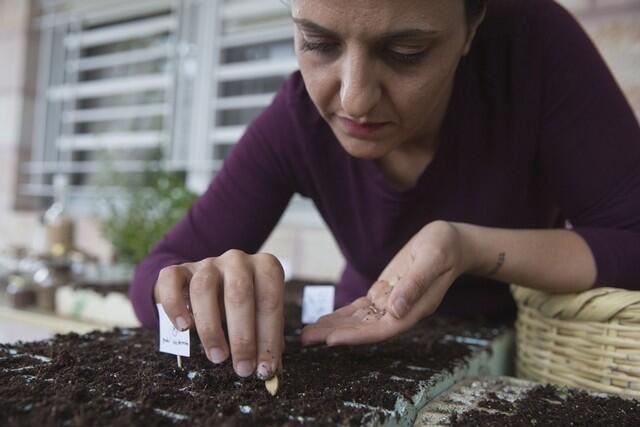

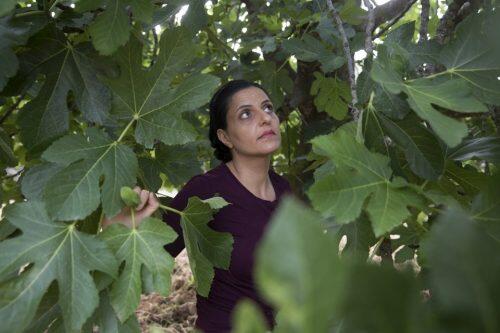
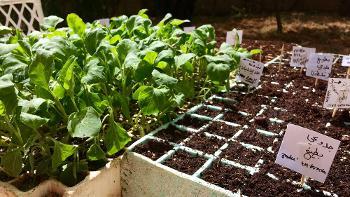
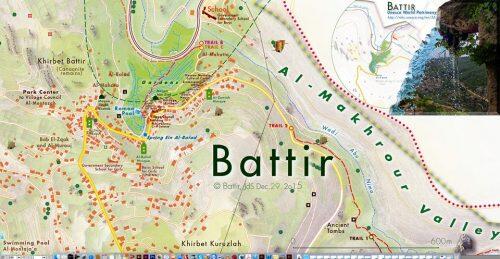
![Teachers attend an Heirloom Seed Library workshop in the West Bank village of Battir [Photo courtesy of Vivien Sansour]](https://greenarea.com.lb/wp-content/uploads/2016/06/da05efc5873e4eeebae0f9af06083228_18-500x281.jpg)
